Spingarn Medal facts for kids
The Spingarn Medal is a special award given every year by the National Association for the Advancement of Colored People. It honors an amazing achievement by an African American. Joel Elias Spingarn, who was a leader of the NAACP, created this award in 1914. The very first medal was given in 1915 to a biologist named Ernest E. Just. Since then, it has been awarded almost every year.
The NAACP announces the winner at its yearly meeting. People can suggest who they think should receive the award. The medal itself is made of gold and is worth $100. Joel Elias Spingarn left money in his will to make sure the NAACP could keep giving this important award forever.
What is the Spingarn Medal?
The Spingarn Medal celebrates the incredible contributions of African Americans. It highlights their hard work and success in many different fields. This award helps to inspire others and shows the world the amazing things African Americans have achieved. It's a way to recognize leaders, artists, scientists, and activists who have made a big difference.
Who Has Won the Spingarn Medal?
Many inspiring African Americans have received the Spingarn Medal. Here is a list of some of the past winners and why they were honored:
| Year | Picture | Name | Why They Won |
|---|---|---|---|
| 1915 | 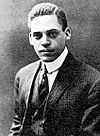 |
Ernest E. Just | For his important research in biology at Howard University Medical School. |
| 1916 | 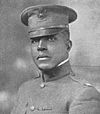 |
Charles Young | For his work in organizing the police force and building roads in Liberia. |
| 1917 | 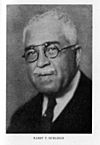 |
Harry T. Burleigh | For his excellent work in creating music. |
| 1918 | 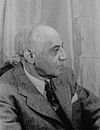 |
William Stanley Braithwaite | For his great achievements in literature. |
| 1919 | 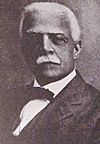 |
Archibald H. Grimké | For his many years of service to his community and country. |
| 1920 | 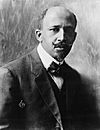 |
William Edward Burghardt (W. E. B.) Du Bois | For being an author, editor of Crisis Magazine, and helping to start the Pan-African Congress. |
| 1921 | 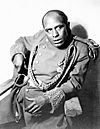 |
Charles S. Gilpin | For his amazing acting in The Emperor Jones. |
| 1922 | 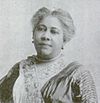 |
Mary B. Talbert | For her continued service to women of color as a former president of the National Association of Colored Women's Clubs. |
| 1923 |  |
George Washington Carver | For his research in Agricultural Chemistry at Tuskegee Institute. |
| 1924 | 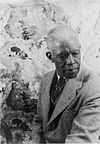 |
Roland Hayes | For his beautiful singing and interpreting Negro folk songs. |
| 1925 | 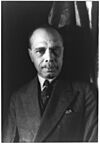 |
James Weldon Johnson | For his work as a former U.S. Consul and secretary of the NAACP. |
| 1926 | 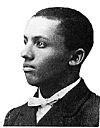 |
Carter G. Woodson | For his outstanding work as a historian and founder of the Association for the Study of African American Life and History. |
| 1927 |  |
Anthony Overton | For leading the first black insurance company certified in New York. |
| 1928 | 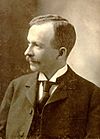 |
Charles W. Chesnutt | For his pioneering writing about the lives of African Americans. |
| 1929 | 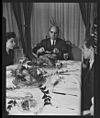 |
Mordecai Wyatt Johnson | For his leadership as the first black president of Howard University. |
| 1930 | 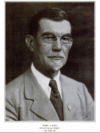 |
Henry Hunt | For 25 years of service in educating black students at Fort Valley High and Industrial School. |
| 1931 | Richard Berry Harrison | For his wonderful acting in the play The Green Pastures. | |
| 1932 | 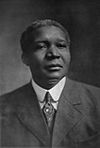 |
Robert Russa Moton | For his excellent leadership in education at Tuskegee Institute. |
| 1933 | 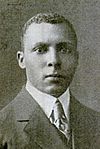 |
Max Yergan | For his excellent work as a Y.M.C.A. Secretary and missionary in Africa. |
| 1934 | 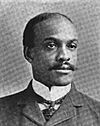 |
William Taylor Burwell Williams | For his long service as a field agent for important education funds. |
| 1935 | 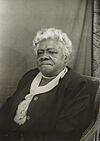 |
Mary McLeod Bethune | For her outstanding leadership and service to education as founder of Bethune Cookman College. |
| 1936 | 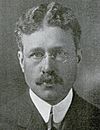 |
John Hope (awarded posthumously) |
For being a distinguished leader of his community as President of Atlanta University. |
| 1937 | 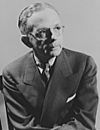 |
Walter White | For his brave investigations into serious injustices. |
| 1938 | No award given | ||
| 1939 | 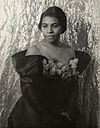 |
Marian Anderson | For her special achievements in music. |
| 1940 | Louis T. Wright | For his contributions to medicine and his courageous stance against unfairness. | |
| 1941 | 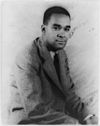 |
Richard Wright | For his outstanding books, Uncle Tom's Children and Native Son. |
| 1942 |  |
A. Philip Randolph | For his role in helping to create the FEPC in 1941. |
| 1943 | 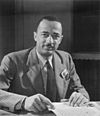 |
William H. Hastie | For his distinguished career as a judge and his fight for equal justice. |
| 1944 |  |
Charles Drew | For his important work in blood plasma research, which led to blood banks. |
| 1945 | 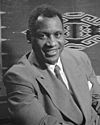 |
Paul Robeson | For his distinguished achievements in theater and concert singing. |
| 1946 | 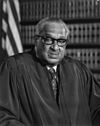 |
Thurgood Marshall | For his distinguished service as a lawyer before the U.S. Supreme Court. |
| 1947 | 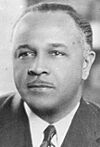 |
Dr. Percy Julian | For his many important scientific discoveries that have saved lives. |
| 1948 | 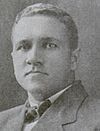 |
Channing H. Tobias | For his consistent role in defending basic American freedoms. |
| 1949 |  |
Ralph J. Bunche | For his special service to the United Nations as a mediator in Palestine. |
| 1950 | Charles Hamilton Houston | For being a strong defender of democracy and leader of the NAACP Legal Committee. | |
| 1951 | Mabel Keaton Staupers | For her leadership of the National Association of Colored Graduate Nurses. | |
| 1952 | Harry T. Moore | For his leadership in the NAACP in Florida and his fight for freedom. | |
| 1953 | 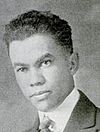 |
Paul R. Williams | For his pioneering work as a creative architect designing modern homes. |
| 1954 | Theodore K. Lawless | For his pioneering achievements in dermatology as a physician and philanthropist. | |
| 1955 | Carl J. Murphy | For being a dedicated editor, publisher, and community leader. | |
| 1956 | 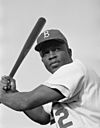 |
Jack Roosevelt Robinson | For his amazing sportsmanship and his important role in baseball. |
| 1957 |  |
Martin Luther King, Jr. | For his leadership in the Montgomery bus protest movement. |
| 1958 | Daisy Bates and the Little Rock Nine | For their brave efforts to uphold American ideals despite threats. | |
| 1959 | 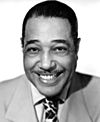 |
Edward Kennedy (Duke) Ellington | For his outstanding and unique musical achievements as a composer and orchestra leader. |
| 1960 | 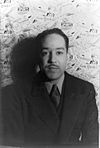 |
Langston Hughes | For his work as a poet, author, and playwright. |
| 1961 | Kenneth B. Clark | For his dedicated research in psychology and service to child development. | |
| 1962 | 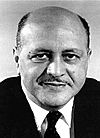 |
Robert C. Weaver | For his many years of dedicated public service at different government levels. |
| 1963 | 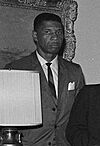 |
Medgar Wiley Evers | For his dedication and courage as an NAACP field secretary in Mississippi. |
| 1964 |  |
Roy Wilkins | For his leadership and dedicated service as Executive Director of the NAACP. |
| 1965 | 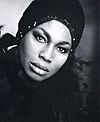 |
Leontyne Price | For her amazing talent as a Metropolitan Opera star. |
| 1966 | John H. Johnson | For founding and leading the Johnson Publishing Company. | |
| 1967 | 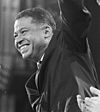 |
Edward W. Brooke, III | For being the first African American to be popularly elected to the United States Senate since Reconstruction. |
| 1968 | 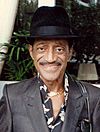 |
Sammy Davis, Jr. | For his work as a Broadway and Hollywood star and civil rights activist. |
| 1969 |  |
Clarence M. Mitchell, Jr. | For his key role in passing civil rights laws. |
| 1970 | Jacob Lawrence | For his work as an artist, teacher, and humanitarian. | |
| 1971 | Leon Howard Sullivan | For his work as a clergyman, activist, and visionary. | |
| 1972 |  |
Gordon Parks | For his unique creativity as a photographer, writer, filmmaker, and composer. |
| 1973 | Wilson C. Riles | For his leadership in education. | |
| 1974 | 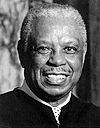 |
Damon J. Keith | For his strong defense of constitutional principles as a judge. |
| 1975 | No award given | ||
| 1976 |  |
Hank Aaron | For his amazing achievements in baseball, including his impressive home run record. |
| 1977 | 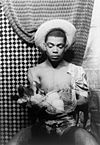 |
Alvin Ailey | For his innovative work as a dancer, choreographer, and artistic director. |
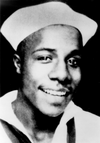 |
Alex Haley | For his thorough research and writing skills in Roots. | |
| 1978 | No award given | ||
| 1979 | 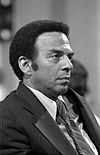 |
Andrew Young | For his work as the United States Ambassador to the United Nations. |
| Rosa L. Parks | For her quiet courage and determination when she refused to give up her seat on a bus in Montgomery, Alabama. | ||
| 1980 | Rayford W. Logan | For his efforts to show the world the ongoing struggle of black Americans against unfair treatment. | |
| 1981 | 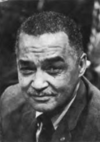 |
Coleman Alexander Young | For his service as Mayor of Detroit and a public servant. |
| 1982 | 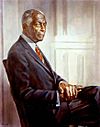 |
Benjamin Elijah Mays | For his work as an educator, theologian, and humanitarian. |
| 1983 | 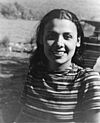 |
Lena Horne | For being an artist, humanitarian, and a symbol of excellence. |
| 1984 | No award given | ||
| 1985 | 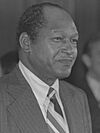 |
Tom Bradley | For his 20 years as Mayor of Los Angeles. |
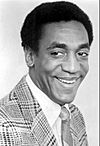 |
Bill Cosby | For his work as a humorist, artist, educator, and humanitarian. | |
| 1986 | Benjamin Lawson Hooks | For his important accomplishments as Executive Director of the NAACP. | |
| 1987 | Percy Ellis Sutton | For his work as a public servant, businessman, and community leader. | |
| 1988 | Frederick Douglass Patterson | For his vision and humanitarian work as an educator and doctor. | |
| 1989 |  |
Jesse Louis Jackson | For being a clergyman, political leader, and civil rights activist. |
| 1990 | 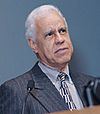 |
Lawrence Douglas Wilder | For his extraordinary life of accomplishments as Governor and public servant. |
| 1991 | 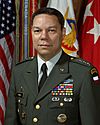 |
Colin L. Powell | For his distinguished service as a General in the U.S. Army and Chairman of the Joint Chiefs of Staff. |
| 1992 | 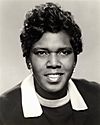 |
Barbara Jordan | For her work as a lawyer, educator, and political leader. |
| 1993 | 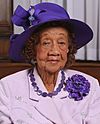 |
Dorothy Irene Height | For her extraordinary leadership in advancing women’s rights. |
| 1994 |  |
Maya Angelou | For her work as a poet, author, actress, and educator. |
| 1995 | 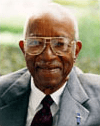 |
John Hope Franklin | For his constant search for truth and his work as a historian and scholar. |
| 1996 | 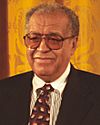 |
A. Leon Higginbotham, Jr. | For his distinguished career as a Federal Judge. |
| 1997 | 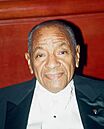 |
Carl T. Rowan | For his work as a journalist, publicist, and public servant. |
| 1998 |  |
Myrlie Evers-Williams | For her work as a civil rights activist and true believer in justice. |
| 1999 | 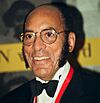 |
Earl G. Graves, Sr. | For founding Black Enterprise Magazine and his work as a businessman and entrepreneur. |
| 2000 | 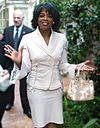 |
Oprah Winfrey | For her work as an actress, producer, publisher, and humanitarian. |
| 2001 | 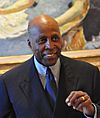 |
Vernon E. Jordan | For his work as a lawyer, advisor to presidents, and champion of civil and human rights. |
| 2002 | 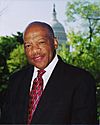 |
John Lewis | For his work as a public servant, protector of civil rights, and inspirer of youth. |
| 2003 | 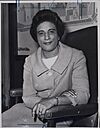 |
Constance Baker Motley | For her commitment to equal opportunity and justice for all Americans as a civil rights pioneer and judge. |
| 2004 | 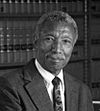 |
Robert L. Carter | For winning 21 cases before the Supreme Court as an attorney and judge. |
| 2005 | 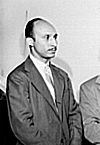 |
Oliver W. Hill | For his key role in the Brown v. Board Supreme Court case and his pursuit of justice. |
| 2006 | 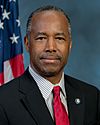 |
Benjamin S. Carson, Sr. | For his lifetime of achievements, becoming the youngest Chief of Pediatric Neurosurgery in the U.S. |
| 2007 | 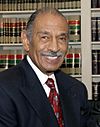 |
John Conyers, Jr. | For his work as a guardian of civil rights and a public servant. |
| 2008 | 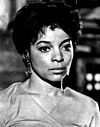 |
Ruby Dee | For her work as an actress, poet, playwright, and civil rights activist. |
| 2009 |  |
Julian Bond | For his work as a former Chairman of the NAACP Board of Directors and civil rights activist. |
| 2010 | 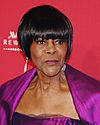 |
Cicely Tyson | For her work as an actress and civil rights activist. |
| 2011 | 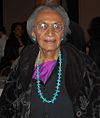 |
Frankie Muse Freeman | For her work as an attorney and civil rights activist. |
| 2012 | 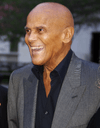 |
Harry Belafonte | For his work as a singer, songwriter, actor, and social activist. |
| 2013 | 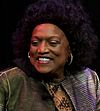 |
Jessye Norman | For her achievements as an opera singer and Grammy Award winner. |
| 2014 | 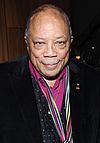 |
Quincy Jones | For his achievements as a composer, producer, and Grammy Award winner. |
| 2015 | 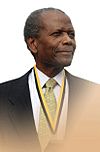 |
Sidney Poitier | For his work as an actor, social activist, and Oscar Winner. |
| 2016 | 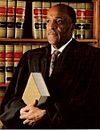 |
Nathaniel R. Jones | For his work as a lawyer, judge, academic, and public servant. |
| 2018 | 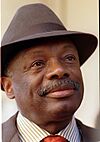 |
Willie L. Brown | For his service as former mayor of San Francisco and former speaker of the California Assembly. |
| 2019 | 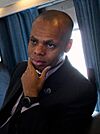 |
Patrick Gaspard | For his work as a community activist, former diplomat, and current president of the Center for American Progress. |
| 2021 | 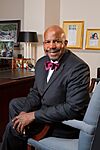 |
Cato T. Laurencin | For his groundbreaking work in tissue regeneration, biomaterials, and nanotechnology. |
| 2022 | 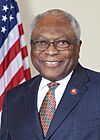 |
Jim Clyburn | For his service as House Majority Whip. |
| 2023 | 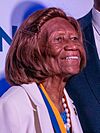 |
Hazel Dukes | For her leadership as the 8th National President of the NAACP. |
| 2024 | 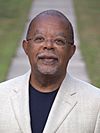 |
Henry Louis Gates Jr. | For his work as an esteemed historian and literary scholar. |
 | Janet Taylor Pickett |
 | Synthia Saint James |
 | Howardena Pindell |
 | Faith Ringgold |

